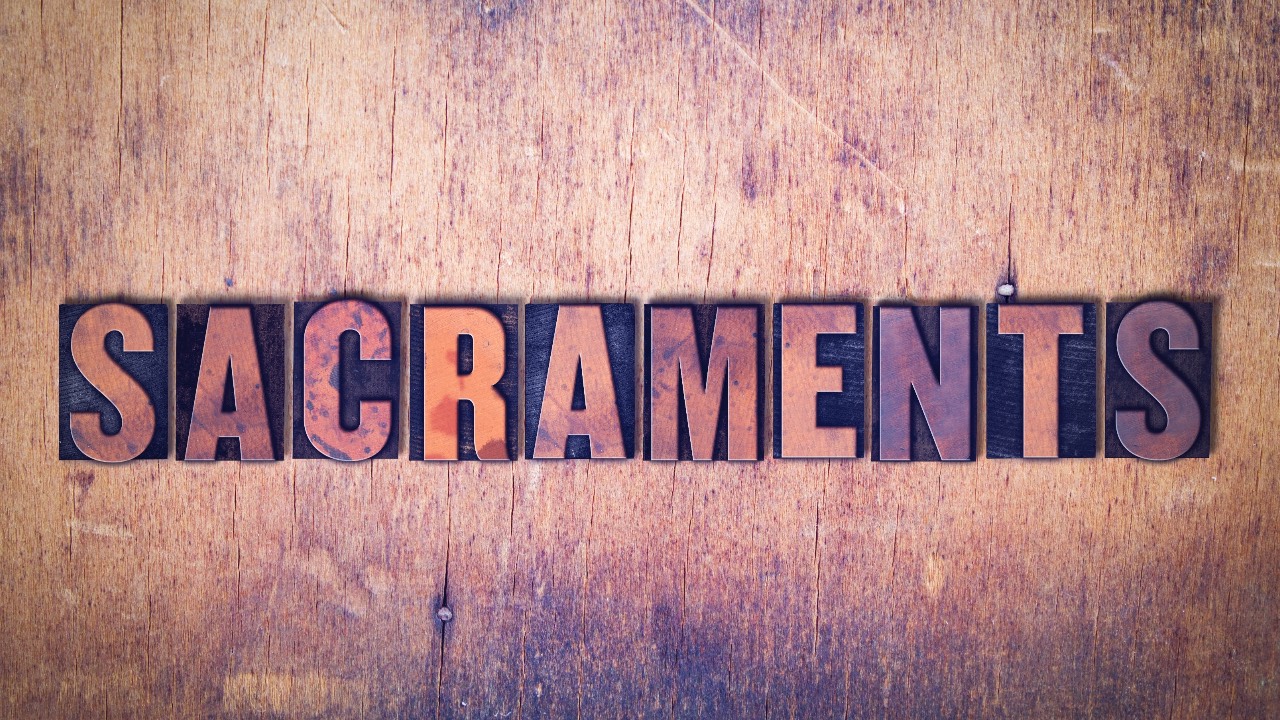Realizing the Sacraments
Jun 02, 2023
The previous blog post where I addressed the essence of ritual inspired me to continue in that vein of thought and address the fundamental component of ritual within the church — the sacraments. The sacraments, although foundational, are poorly understood or appreciated. The traditional number of sacraments is seven: baptism, communion, confirmation, marriage, confession, ordination, and extreme unction. In the wake of the Protestant Reformation, many protestant denominations reduced the number of sacraments to two: baptism and communion. Despite the debates on the number of sacraments, there tends to be limited and vague teaching in the church — regardless of the denomination — concerning the meaning and purpose of the sacraments and how they are incorporated within our lives.
In my tradition (Episcopal), the definition offered in the catechism to the question “What are the sacraments?” is traditional and common: “The sacraments are outward and visible signs of inward and spiritual grace, given by Christ as sure and certain means by which we receive grace” (The Book of Common Prayer, 1979, page 857). Huh? It’s a nice, pious sounding statement but what exactly do those words mean? What exactly is “spiritual grace?” And, most importantly, how is this grace experienced in the midst of my human life?
In other words, the catechism provides a good (if convoluted) answer to a bad question. The reason I say it is a bad question is that the premise of the question is that the sacraments are things. The word “what” implies we are talking about things and/or objects. The sacraments are not things. The sacraments are actions. They are actions in which we participate. As Tad Guzie notes in his book Sacramental Basics, the sacraments are actions which the community enacts and not “things” which are received. They are that which we do and not something that is done to us. Simply put, without participation — action and engagement — there is no sacrament.
This objectification of the sacraments coincides with the shift in our understanding of church — a shift from the church being a community gathered in Christ to an organization to which one belongs. In other words, the church shifted from being a “we” to becoming an “it” — an institution. Today the idea of church being an institution is so ubiquitous that when the term “church” is used most people picture a building rather than a community of people. Consequently, church (the building) is where you (a recipient) go to receive (passively) the sacrament (a thing). This decline of sacramental practice — our (i.e., peoples) active participation in the sacramental action as celebrators — coincides with our loss of awareness of being church.
Today our quandary is that the sacraments have become so “churchy” or “religious” that they have become completely disconnected from our daily lives. And yet, the sacraments are practices — actions in which we engage — which necessitates embracing our lived experience. The traditional symbols for the sacraments seek to confirm this vital connection to the physical world — the symbols being common entities. Unfortunately, over the centuries, our focus has shifted from the actions being symbolized onto the symbolic objects themselves reinforcing the notion of passive reception on the part of the individual rather than an act of the empowerment to live a transformed or holy life. The experience of the sacraments within the early church nurtured our spiritual ancestors — inspiring spiritual growth and emboldening committed action on behalf of Love. It is imperative to reclaim the sacraments as spiritual acts of empowerment whereby we intentionally and consciously engage life.
Such a reclamation begins with recounting the essence of the sacramental habits. Baptism is the practice of reception — whereby the individual is seeking acceptance into the community and the community reciprocates by accepting the individual as one of its own. Communion is the practice of acknowledging our holy union with God and others — recognizing the face of God in the face of the other. Confirmation is the practice whereby the individual commits themself to a particular way of living or being in the world — in other words, to an honor code. Marriage is the practice of the giving of one’s self to another (which implies honoring and loving one’s self) and the willingness to accept the other (as well as one’s self) for who they are (and not simply who you want them to be). Confession is the practice of cleansing one’s spirit of negative acts of will by acknowledging the intentional act and then forgiving self and others. Ordination is the practice of acknowledging one’s gifts and dedicating them to the service of others. Extreme Unction is the practice of finishing one’s unfinished business — not only at the time of death but as a daily practice which enables one to live in present time or the “eternal now.” Realizing the sacraments provide the necessary benefactions for our spiritual journey — empowering our ability to grow up and wake up to our True Self and incarnate God — Love — in our world.
SUBSCRIBE TO OUR MAILING LIST
Be in the know when a new blog is posted.
We hate SPAM. We will never sell your information, for any reason.

